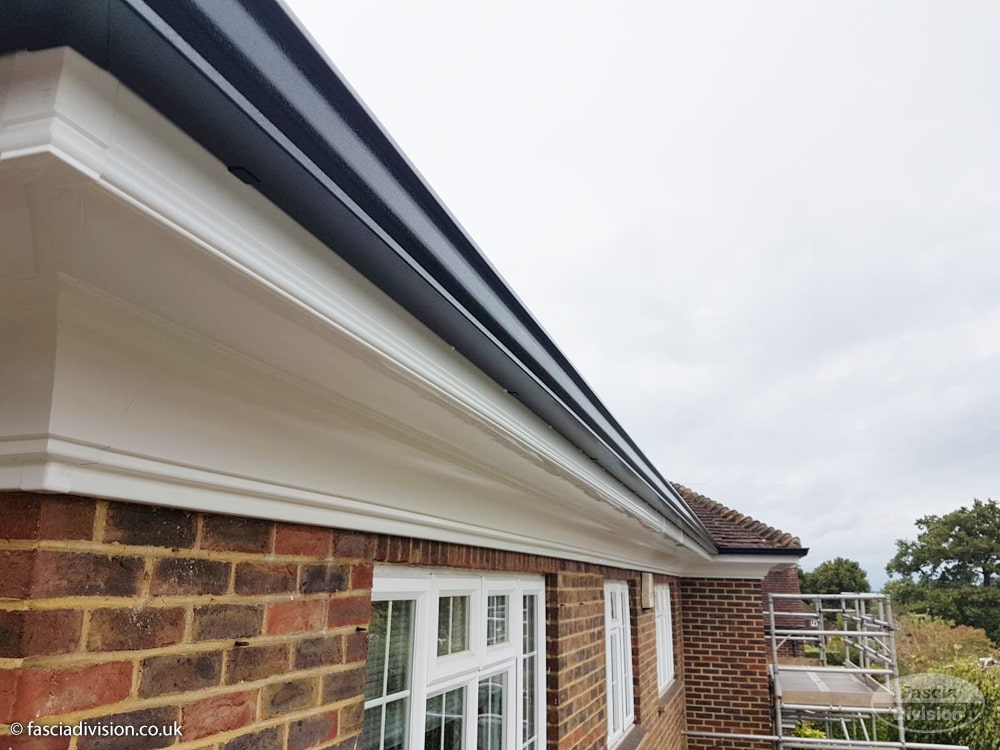
Affordable Soffit Replacement
Add a review FollowOverview
-
Founded Date May 6, 1945
-
Sectors Digital & Creative
-
Posted Jobs 0
-
Viewed 60
Company Description
Upvc Soffit Tools To Ease Your Daily Lifethe One Upvc Soffit Trick Every Person Should Learn
Understanding UPVC Soffit: A Comprehensive Guide
Introduction
The world of home building and renovation is filled with myriad choices, and one such choice that homeowners typically deal with is concerning materials for soffits. Amongst the various alternatives available, Unplasticized Polyvinyl Chloride (UPVC) has emerged as a popular option. This short article explores what UPVC soffit is, its benefits, installation ideas, maintenance, and more, offering a well-rounded understanding for those considering this choice.
What is UPVC Soffit?
Soffit is the overhanging area of a roof that sits underneath the eaves. It is essential in supporting the roof while boosting the residential or commercial property’s visual appeal. Generally, soffits were made from timber, however with the development of UPVC, homeowners now have a more durable and low-maintenance option. UPVC soffits are weatherproof, resistant to rot, and offer remarkable thermal insulation.

Secret Characteristics of UPVC Soffit
- Toughness: UPVC materials are resistant to the components and do not warp or deteriorate like wood.
- Low Maintenance: Unlike wooden soffits that need regular painting and treating, UPVC soffits are simple to clean and preserve.
- Versatility: Available in different styles and colors, UPVC soffits can complement any architectural style.
- Insulation: UPVC uses excellent thermal insulation residential or commercial properties, assisting in energy preservation.
Advantages of UPVC Soffit
In choosing UPVC soffits, homeowners open many advantages:
-
Weather Resistance: UPVC soffits can stand up to extreme weather condition conditions– be it rain, snow, or sun– without damage.
-
Fire Resistance: UPVC is non-combustible, making it a more secure option for lots of property owners.
-
Cost-Effectiveness: Although the preliminary investment might be greater than standard materials, the durability and reduced maintenance costs often make UPVC the more economical alternative with time.
-
Enhanced Aesthetics: UPVC soffits are available in different finishes, enabling property owners to choose designs that enhance their home’s appearance.
Table 1: Comparison of Soffit Materials
| Product | Resilience | Maintenance | Cost | Aesthetic Options |
|---|---|---|---|---|
| UPVC | Very High | Low | Moderate | High (varied designs) |
| Wood | Moderate | High | Low-Medium | Moderate (limited colors) |
| Aluminium | High | Moderate | Medium-High | High (different surfaces) |
| Vinyl | High | Low | Moderate | Moderate (some custom choices) |
Installation of UPVC Soffit
The installation of UPVC soffit can appear complicated, but breaking it down into workable actions can streamline the process. It is advisable to engage professionals for a seamless installation, however homeowners with DIY abilities can follow these steps.
Steps for Installing UPVC Soffit
-
Step the Area: Use a measuring tape to identify the lengths and locations where the soffit will be installed.
-
Select Materials: Choose UPVC soffit boards in the wanted colors and designs, together with any required accessories like nails and brackets.
-
Prepare the Surface: Clean and prepare the area to make sure optimal adhesion and fit.
-
Cut UPVC Boards: Use a saw to cut UPVC boards to the required lengths based upon your measurements.
-
Set Up Soffit Boards: Begin attaching the boards from one end, guaranteeing they are level and flush.
-
Finish Edges: Use completing boards to cover exposed edges for a clean appearance.
Table 2: Essential Tools for UPVC Soffit Installation
| Tool | Function |
|---|---|
| Measuring tape | For measurements |
| Saw | To cut UPVC boards |
| Level | To make sure boards are straight |
| Drill | For attaching screws/nails |
| Security Equipment | To safeguard while setting up |
Maintenance of UPVC Soffit
One of the most substantial benefits of UPVC soffit is its low maintenance requirement. However, with any product, some care is still necessary to lengthen its life-span.
Tips for Maintaining UPVC Soffit
- Regular Cleaning: Use a soft brush or fabric along with warm soapy water to clean up the soffits.
- Check for Damage: Periodically check for fractures, discolorations, or other damages, especially after severe weather.
- Seal Joints: Ensure all joints remain sealed to prevent leakages and water ingress.
- Prevent Harsh Chemicals: Do not utilize abrasive cleaners as these can harm the surface area of the UPVC.
Often Asked Questions (FAQs)
Q1: Can UPVC soffit be painted?
A1: While it is technically possible to paint UPVC soffits, it is not suggested as the paint may not adhere well and may peel with time. UPVC comes in different colors, removing the need for painting.
Q2: How long does UPVC soffit last?
A2: UPVC soffit can last over 20-30 years when appropriately kept. Its resistance to rot and decay substantially adds to its durability.
Q3: Are UPVC soffits environmentally friendly?
A3: UPVC is recyclable, making it a more eco-friendly choice in contrast to many traditional products. Nevertheless, the production procedure has a carbon footprint, so factor to consider of one’s ecological impact is vital.
Q4: Is it needed to aerate UPVC soffits?
A4: Yes, correct ventilation is essential for avoiding wetness buildup in the attic, which can lead to mold and decay. Many UPVC soffit choices include built-in ventilation features.
Selecting UPVC soffit can substantially enhance a home’s appearance while supplying long-term durability and low maintenance. With the different advantages of this product, consisting of weather condition resistance, fire safety, and cost-effectiveness, property owners are encouraged to consider it for their remodelling or building jobs. By comprehending the installation, maintenance, and advantages of UPVC soffits, individuals can make educated options that protect their home investments while improving their home.
